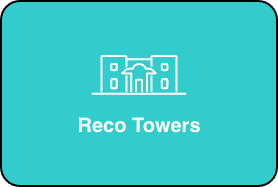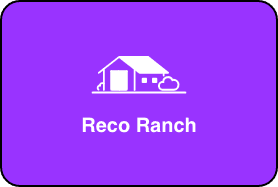Ultimate Guide to Sober Living in Delray Beach

Introduction to Sober Living in Delray Beach
Understanding Sober Living
Sober living environments provide a pivotal stepping stone for individuals transitioning from an inpatient treatment program to mainstream society. These residences are more than just a place to stay, they embody a structured, supportive environment where individuals recovering from substance use disorders can cultivate a sober lifestyle alongside peers facing similar challenges. The essence of sober living in Delray Beach, and notably within the ambit of the RECO Institute’s offerings, is to furnish residents not just with a bed, but with a comprehensive program that includes peer support, accountability, and a spectrum of recovery-focused activities. This holistic approach ensures that residents are not merely abstaining from substances but are actively engaging in a transformative journey toward long-term sobriety.
Why Delray Beach is a Premier Destination for Recovery
Delray Beach, Florida, stands out as a haven for individuals seeking serenity and a conducive atmosphere for recovery. Its picturesque beaches, warm climate, and vibrant recovery community make it an ideal location for sober living residences. The city’s commitment to supporting those in recovery is evident in its myriad of 12-step meetings, recovery events, and a generally supportive societal ethos that permeates its very fabric. This nurturing environment fosters a sense of community and belonging, crucial factors in preventing relapse and encouraging a positive outlook toward lasting recovery. Moreover, the natural beauty and recreational opportunities in Delray Beach offer a scenic backdrop that promotes psychological and emotional healing, adding a therapeutic dimension to the sober living experience.
The Role of RECO Institute in Supporting Sobriety
The RECO Institute excels in providing a unique and effective approach to sober living in Delray Beach. Distinctly integrating transitional housing with robust treatment programs, the RECO Institute emerges as a beacon of hope for men and women in the early stages of recovery. By marrying the concepts of community living with individualized care plans, RECO ensures that each resident’s journey is both supported and personal. A standout aspect of their program is the emphasis on integrating clients into the broader recovery community, offering opportunities for engagement in local activities, volunteer work, and peer support dynamics. Furthermore, RECO Institute’s dedication to the seamless transition of clients from structured treatment to independent living is exemplified by its comprehensive alumni program, ensuring ongoing support and guidance as individuals navigate their new sober life. This holistic approach not only solidifies the RECO Institute’s vital role in supporting sobriety but also positions it as a pillar in the recovery landscape of Delray Beach, Florida.
The Essentials of Sober Living Programs
What Defines a Sober Living Program
Sober living programs are designed to offer a supportive, structured environment for individuals transitioning from more intensive addiction treatment programs to regular, independent living. Far from being mere residences, these programs provide a bridge to real-world sobriety, emphasizing the development of healthy habits, lifestyles, and coping mechanisms. At the heart of a sober living program is its commitment to fostering a drug- and alcohol-free environment where individuals can strengthen their recovery. Essential components include a set of rules that all residents must follow, such as abstaining from substance use, participating in household duties, and attending recovery meetings or therapy sessions. These regulations are not just about maintaining order, they’re about cultivating responsibility and accountability, key pillars in one’s journey toward lasting recovery.
The Structure of Sober Living Homes
Sober living homes are structured to replicate normal living conditions while providing an overlay of support and supervision vital for early recovery. The structure often includes shared living spaces to promote peer support and communal living, although private options are available. A significant feature distinguishing these homes is the presence of a house manager or supervisor to oversee daily operations, enforce house rules, and provide guidance. The integration of structured schedules, including designated times for chores, meetings, and activities, helps residents establish routine and discipline-essential factors in sobriety maintenance. The physical environment of a sober living home is crucial as well. Spaces are organized to encourage communal interactions yet allow for privacy, reflecting the balance needed in recovery between support from others and self-reliance.
Key Features of Successful Sober Living Programs
Successful sober living programs share several key features that contribute to their effectiveness in supporting long-term recovery. These include:
- A Strong Support System: This comprises both the structured support from staff and the organic peer support that develops among residents. Facilitated group discussions, one-on-one counseling sessions, and access to external recovery meetings like Alcoholics Anonymous (AA meetings) are integral.
- Personal Development Opportunities: Beyond sobriety, top programs focus on personal growth, offering educational workshops, employment assistance, and activities that promote physical health and wellness.
- Clear Expectations and Rules: Setting and maintaining boundaries is essential in recovery. Successful programs enforce rules regarding substance use, participation in house duties, and engagement in the community constructively and consistently.
- Aftercare Planning and Alumni Support: Transitioning out of sober living doesn’t mean the end of support. Leading programs provide aftercare planning services and develop strong alumni networks to ensure that graduates have a lifeline back to the community that supports their early recovery stages.
- Cultural and Recreational Activities: Integrating enjoyable activities and cultural engagements into the program helps residents rediscover hobbies and interests in a sober context, which is vital for rebuilding a fulfilling, substance-free life.
In essence, the most impactful sober living programs, such as those offered by the RECO Institute in Delray Beach, go beyond merely providing a place to live. They furnish a supportive and structured pathway to recovery, imbue residents with a sense of purpose and direction, and prepare them for a successful, sober future.
Benefits of Sober Living in Florida
A Supportive Environment for Recovery
Florida has long been a beacon for those seeking a fresh start, particularly for individuals embarking on the journey to sobriety. Its warm climate, abundant sunshine, and serene landscapes create a naturally healing environment that complements the recovery process. Delray Beach, in particular, offers a unique blend of tranquil beaches and a vibrant, supportive community that fosters personal growth and healing. The state’s embrace of sober living facilities, including the RECO Institute, enriches this environment further, providing structured and stable residences that are crucial during the early stages of recovery. These homes promote a lifestyle free from substance use, where residents can focus on their well-being with the support of peers and professionals. The supportive environment extends beyond the walls of the sober living houses, as the larger community is known for its welcoming attitude towards those in recovery, offering numerous resources, meetings, and activities designed to aid in maintaining sobriety.
The Advantage of Florida’s Recovery Community
Florida’s recovery community is one of the most vibrant and extensive in the United States, with Delray Beach standing out as a hub. The area boasts a wide array of recovery meetings, including 12-step programs, support groups, and wellness workshops, allowing each individual to find their niche or try various approaches to support their recovery journey. This community is characterized by a spirit of openness, acceptance, and mutual support, where stories and experiences are shared freely, offering hope and encouragement to those new to sobriety. The advantage of such an extensive recovery network is the accessibility to group homes and structured programs that understand the importance of peer support in overcoming addiction. This ecosystem fosters connections that can lead to lasting friendships and mentorships, further bolstering individuals’ commitment to sobriety and personal development.
Access to Outdoor Activities and Holistic Recovery Options
In addition to the supportive environment and robust recovery community, Florida, particularly Delray Beach, provides ample opportunities for outdoor activities and holistic recovery options that are integral to many individuals’ healing processes. The beautiful weather and natural surroundings encourage residents to engage in outdoor activities such as beach walks, yoga, swimming, and cycling, which can play a significant role in physical recovery and emotional well-being. Moreover, the focus on holistic recovery is evident in the availability of alternative therapies and wellness programs in the area, including meditation, acupuncture, and nutritional counseling. These resources offer a comprehensive approach to recovery, addressing not just the symptoms of substance use disorders but the underlying causes and the overall health of the individual. This holistic perspective is a key feature of the Florida recovery experience, promoting a balanced lifestyle that supports long-term recovery and personal fulfillment.
RECO Institute’s Unique Approach to Sober Living
Integrating Transitional Housing with Treatment Programs
RECO Institute stands out in the realm of sober living in Delray Beach by seamlessly integrating transitional housing with comprehensive treatment programs. This unique approach underscores the belief that the journey to sobriety extends beyond the confines of traditional rehab facilities into the day-to-day experiences of residents in a supportive environment. At RECO, sober living residences are not viewed merely as places to stay but as integral components of a broader treatment spectrum designed to guide individuals through their recovery journey. The hallmark of this integrated model is its ability to provide a stable environment while also offering the Best Treatment Programs for Alcohol Addiction tailored to meet the nuanced needs of each resident. By fostering a living scenario where therapeutic interventions and community support intersect, RECO optimizes the recovery experience, preparing individuals for a successful, sober life in the real world.
Alumni Program and Continuing Support
A pivotal aspect of the RECO Institute’s approach to sober living is its robust Alumni Program and the continuing support that stems from it. This program underscores the institute’s commitment to the long-term success of its residents beyond their initial recovery phases. Through activities like the RECO Institute Alumni Buddy Program, residents graduate into a supportive network of peers who have walked similar paths toward sobriety. This network offers not just social connections but a safety net for individuals who understand the trials and triumphs of recovery. The alumni program, far from being a mere afterthought, is a well-structured platform that includes regular check-ins, group meetings, and social events designed to reinforce the sobriety journey. Alumni are encouraged to give back by mentoring newer residents, creating a cyclical ecosystem of support that enriches the RECO community. This continuum of care ensures that the journey toward recovery is not a solitary endeavor but one buoyed by a compassionate community.
Personalized Recovery Plans
At the nucleus of RECO Institute’s sober living approach is the development of Personalized Recovery Plans (PRP). Recognizing that the path to sobriety is as individual as the people it serves, RECO places great emphasis on customizing recovery plans to suit the unique circumstances, needs, and goals of each resident. This tailor-made approach allows for flexibility in addressing the specific challenges encountered by individuals in their recovery process. From addressing co-occurring mental health issues to facilitating employment and educational opportunities, these plans are comprehensive in scope. They are continually assessed and adapted as residents progress, ensuring that support systems evolve in tandem with residents’ recovery journeys. Such personalization not only enhances the efficacy of the recovery process but also empowers residents, instilling in them a sense of ownership and responsibility towards their own sober living journey. Through this individualized focus, RECO Institute champions a more engaging, and ultimately more successful, route to long-term sobriety.


Understanding the Admission Process
Criteria for Admission
Transitioning to a life of sobriety is a significant step that requires commitment and a supportive environment. RECO Institute in Delray Beach, known for its dedicated sober living and recovery services, has established specific criteria for admission to ensure that individuals are poised to benefit from its comprehensive programs. Key admission criteria include a demonstrated commitment to sobriety, the completion of a primary treatment program for substance use disorders, and a willingness to participate actively in the recovery community. Additionally, potential residents must pass a thorough screening process that includes interviews and a review of their recovery history. This meticulous approach ensures that RECO Institute maintains a safe, supportive, and drug-free environment for all its residents, fostering an atmosphere conducive to healing and long-term recovery.
The Steps to Join the RECO Institute Community
Joining the RECO Institute community is a streamlined process designed to integrate individuals smoothly into their new sober living environment. Initially, interested persons are encouraged to reach out through the institute’s website or contact number to express their interest in the program. Following this, a preliminary assessment is conducted to gauge the individual’s recovery needs and compatibility with the sober living community. This assessment includes discussing personal recovery goals, any co-occurring mental health conditions, and specific preferences for housing.
Upon approval, individuals are guided through the financial planning phase, which may include discussions about insurance coverage, payment options, and any available scholarships or financial assistance programs. The final step involves planning the move-in date, where incoming residents are welcomed into their new home, introduced to the community, and oriented on the house rules, program expectations, and available resources. This thorough process ensures that every new member of the RECO Institute community is well-prepared and supported as they embark on their journey to a sober and fulfilling life.
Preparing for Your Stay
Preparing for a stay at a RECO Institute sober living home involves both logistical and mental preparation. Logistically, individuals are encouraged to pack personal items that will help them feel at home, keeping in mind the communal living environment. Essential personal items, comfortable clothing, and items of personal significance are recommended, while substances, paraphernalia, or items that could potentially trigger relapse are strictly prohibited.
Mentally, preparing for your stay means embracing the journey ahead with an open mind and a willingness to actively engage in the recovery process. This includes being ready to participate in group activities, house meetings, and individual therapy sessions. Prospective residents are also advised to familiarize themselves with the rules and expectations of the sober living home, which are designed to promote a stable and supportive recovery environment. Embracing the community aspect of sober living, such as the support and camaraderie found among fellow residents, is equally important.
By understanding the admission process and adequately preparing for their stay, individuals are taking a pivotal step toward embracing a new chapter of their lives. The RECO Institute’s holistic approach to recovery not only provides a safe and structured environment for overcoming substance use disorders but also fosters personal growth and long-term sobriety.
Life at a Sober Living House
Day-to-Day Activities in Sober Living
The routine in a sober living house is designed to instill a sense of normalcy and structure, crucial elements in the recovery process. Every day, residents engage in various activities that support their journey toward long-term sobriety. These activities typically include group therapy sessions, individual counseling, job training or employment, and participation in recreational activities or hobbies. Additionally, residents may attend external 12-step meetings or similar support groups, reinforcing their commitment to sobriety outside the sober living environment. This structured, yet flexible schedule allows residents to slowly rebuild their independence and confidence, managing their time effectively while staying committed to their recovery goals. The balance between scheduled activities and personal time is key, offering opportunities for growth, reflection, and community involvement.
Role of a Sober Living House Manager
The house manager plays a pivotal role in the functioning of a sober living house, ensuring the maintenance of a safe and supportive environment conducive to recovery. This individual is responsible for overseeing daily operations, enforcing house rules, and offering guidance and support to residents. They may also coordinate activities, manage disputes, and conduct regular meetings to check in on residents’ progress. The house manager acts as a bridge between residents and the broader recovery community, facilitating access to additional resources and services as needed. Moreover, their presence provides a model of responsible, sober living, offering residents a tangible example of recovery success. This leadership role is essential in fostering a sense of accountability, community, and shared responsibility among residents, contributing significantly to the overall effectiveness of the sober living experience.
Creating Brotherhood and Sisterhood in Recovery
A unique and profound aspect of sober living is the formation of deep bonds of brotherhood and sisterhood among residents. This communal experience, characterized by shared struggles and triumphs, fosters a powerful sense of belonging and support that is invaluable in recovery. Residents learn to lean on each other for emotional support, advice, and encouragement, turning the sober living house into a real home. Activities like group meals, outings, and shared hobbies strengthen these connections, creating a network of mutual care and understanding. The RECO Institute, understanding the importance of this aspect, emphasizes community building within their program, offering residents opportunities to participate in group outings and volunteer work, further cementing the bonds formed within the sober living environment. This focus on creating a strong, supportive community ensures that residents don’t just survive in sobriety-they thrive, bolstered by the friendships and kinship developed during their stay.
The Support System within Sober Living
Peer Support and Its Impact
A cornerstone of the recovery process within sober living homes, like those offered by the RECO Institute, is the invaluable peer support system. Built on a foundation of shared experiences and understanding, peer support serves as an essential lifeline for residents navigating the challenges of sobriety. Through daily interactions, group meetings, and collective activities, residents develop deep bonds and a sense of mutual accountability that significantly strengthens their commitment to recovery. This environment fosters an atmosphere where individuals feel seen, heard, and supported, enabling them to freely share their struggles and triumphs without fear of judgment. The impact of this supportive network cannot be overstated, it not only provides emotional and moral support but also plays a critical role in reducing feelings of isolation and vulnerability that often accompany recovery. By integrating Aftercare with Peer Support, the RECO Institute ensures that the transition to sober living is complemented by a robust support system that is instrumental in achieving long-term sobriety.
Group Homes versus Individual Recovery
While both group homes and individual recovery pathways offer valuable support structures for overcoming substance use disorders, there are distinct advantages to the communal living environment that group homes provide. In sober living arrangements like those at RECO Institute, the shared living space cultivates a sense of community and collective responsibility that is often absent in individual recovery settings. Group homes encourage collaboration, shared experiences, and the formation of a shared recovery culture that individual settings cannot replicate. Residents learn to navigate recovery together, facing challenges and celebrating achievements as a collective unit. This collaborative approach not only bolsters individual recovery efforts but also promotes the development of social skills and healthy interpersonal relationships, which are crucial for reintegration into society. Additionally, group homes provide a structured environment with consistent rules and routines, which are essential for maintaining sobriety and building a stable lifestyle.
Access to Outpatient Programs and Therapy
One of the key features distinguishing RECO Institute from other sober living options is its comprehensive approach to recovery which includes access to outpatient programs and therapy. Understanding that recovery is a multifaceted process, RECO offers residents a range of therapeutic services designed to address the underlying causes of addiction and equip individuals with the tools needed for long-term sobriety. These services include individual counseling, group therapy sessions, and access to various outpatient programs that focus on relapse prevention, life skills development, and mental health management. This integrated approach ensures that residents receive not only the social support vital for recovery but also the professional guidance necessary to work through personal challenges and trauma that may contribute to substance use disorders. By providing a seamless transition to these outpatient services, the RECO Institute facilitates a holistic recovery journey that is both supportive and empowering, paving the way for successful reintegration into society.
Navigating Challenges in Early Recovery
Common Hurdles in Sober Living
Early recovery is a time of profound transformation and, while immensely rewarding, it does come with its own set of challenges. In sober living environments like those provided by the RECO Institute, residents often face hurdles such as adjusting to a new and structured lifestyle, managing cravings or triggers, and navigating interpersonal relationships within the sober living community. The move from an often chaotic lifestyle into one governed by rules, schedules, and expectations can be jarring. Residents may struggle with the feeling of loss for their old life, even if it is detrimental to their well-being. Additionally, without their previous coping mechanism of substance use, individuals might find themselves confronting emotions and traumas they had previously numbed. Understanding these common hurdles is the first step in preparing residents to effectively tackle them, ensuring they don’t become roadblocks on their path to recovery.
Strategies for Overcoming Triggers
Overcoming triggers, those unexpected urges to revert back to substance use, is critical in early recovery. RECO Institute emphasizes comprehensive strategies integrated into their structured sober living program to help residents navigate these challenges. Key to this approach is the development of personalized coping mechanisms that residents can deploy when faced with potential triggers. This could include mindfulness practices, engaging in physical activity, or reaching out to a support network, including the strong peer group found within the sober living community. Moreover, the therapeutic sessions available as part of the sober living program equip residents with cognitive tools to reframe their thinking and respond to triggers in a healthy manner. Another crucial strategy involves environmental management- structuring one’s space and schedule to minimize exposure to triggers and ensure a supportive, substance-free environment.
The Importance of House Meetings and Shared Responsibilities
House meetings and shared responsibilities are central aspects of life in sober living homes, including those offered by the RECO Institute. These gatherings and duties are not merely administrative but serve a deeper purpose in the recovery process. House meetings offer a structured platform for open communication, allowing residents to share their experiences, challenges, and achievements. This fosters a culture of transparency and mutual support, essential in maintaining sobriety. Moreover, through the discussion of house rules and responsibilities, residents learn to hold themselves and each other accountable, an important skill in recovery and beyond.
Shared responsibilities, from maintaining communal spaces to supporting newer members, further reinforce this sense of community and mutual reliance. These duties not only teach practical life skills but also imbue residents with a sense of purpose and belonging, contributing to their self-esteem and overall well-being. By actively participating in house meetings and taking on shared responsibilities, residents at RECO Institute learn to navigate communal living, work together towards common goals, and support each other’s sobriety, laying a strong foundation for their recovery journey.
Building a Future Post-Sober Living
Planning for Long-Term Recovery
The journey towards a fulfilling, sober life doesn’t conclude upon leaving a sober living residence, it’s a continuous path that demands vigilance, planning, and support. At RECO Institute, the planning for long-term recovery is initiated from day one, emphasizing the importance of sustainable sobriety practices that can be integrated into everyday life. Tailored recovery plans, developed during the resident’s stay, provide a blueprint for navigating post-sober living challenges, incorporating strategies for coping with triggers, maintaining healthy relationships, and continuing personal and professional growth. Residents are also encouraged to keep a lifelong connection with supportive networks, including the RECO Institute Alumni Buddy Program, 12-step meetings, and other recovery-oriented groups. By laying down a solid plan for long-term recovery, individuals are better equipped to face the uncertainties of life with resilience and a sober mindset.
Transitioning from Sober Living to Independent Living
Transitioning from the structured environment of sober living to independent living is a critical step in an individual’s recovery journey. It requires careful preparation and support to ensure the transition is smooth and sustainable. RECO Institute recognizes the complexity of this phase and offers comprehensive transitional support that addresses both the practical and emotional aspects of becoming fully independent. This includes guiding finding suitable housing, navigating employment opportunities, and managing finances responsibly. To mitigate the risk of relapse during this vulnerable period, residents are taught to strategically apply the coping skills and relapse prevention techniques they’ve acquired. Additionally, RECO’s continuum of care model ensures that prior residents have ongoing access to counseling, group therapy, and alumni events, anchoring them to a supportive community even after they’ve moved on to independent living.
Utilizing the Resources of the RECO Institute Alumni Program
The RECO Institute Alumni Program stands as a testament to the institution’s commitment to the lasting recovery of its residents. This comprehensive program serves as a bridge connecting the structured world of sober living to the broad horizons of an independent, sober life. Alumni have access to a wealth of resources, including ongoing support groups, educational workshops, and social gatherings, which reinforce the lessons learned during their stay. The RECO Institute Alumni Buddy Program, in particular, fosters mentorship relationships that provide additional layers of support and accountability. Alumni are encouraged to remain engaged with the community, whether by participating in volunteer opportunities, sharing their journey with current residents, or simply by being a part of the network of peers who understand the complexities of recovery. This sustained engagement not only aids in the alumni’s personal growth but also enriches the recovery experience for the current residents, creating a virtuous cycle of support and success within the RECO community.


Why Choose RECO Institute for Sober Living in Delray Beach
Testimonials of Success and Transformation
One of the most compelling reasons to choose the RECO Institute for sober living in Delray Beach is the multitude of success stories from its alumni. Each testimonial is a unique tale of triumph over addiction, illustrating the transformative power of a supportive environment, comprehensive care, and personalized recovery plans. Residents at RECO Institute often speak of finding not just sobriety but a renewed sense of purpose and direction in life. These testimonials resonate with hope, showcasing the institute’s unwavering commitment to nurturing long-term recovery and personal growth. From regaining family relationships to achieving professional success, the stories of RECO alumni underscore the effectiveness of an integrated approach to addiction treatment and sober living.
Comparing RECO Institute with Other Sober Living Options
Compared to other sober living residencies, the RECO Institute stands out for its comprehensive recovery model that integrates transitional housing with treatment programs, providing a seamless continuum of care. While many sober living environments offer a place of residence, the RECO Institute ensures a holistic treatment experience that addresses both the psychological and practical aspects of recovery. Its robust alumni program and personalized recovery plans further differentiate it from other options. Moreover, RECO’s location in Delray Beach, a community rich in recovery resources and support networks, plays a critical role in the superior recovery outcomes observed among its residents. These distinctions highlight the value of choosing the RECO Institute for sober living in Delray Beach, offering not just a transitional phase but a transformative journey towards sustained sobriety.
The Future of Sober Living and Recovery in Delray Beach
The landscape of sober living and recovery in Delray Beach is continuously evolving, with RECO Institute at the forefront of pioneering change. Anticipating the 2024 trends in sober living and recovery housing, the RECO Institute is committed to innovating its programs to meet the changing needs of those in recovery. From enhancing its use of technology in treatment to expanding its recovery housing options, RECO is poised to continue leading by example. The institute’s focus on community integration, evidenced by the success of the RECO Row Community, signals a future where sober living environments are not isolated but are integral parts of the broader community. This vision for the future underscores the institute’s dedication to breaking the stigma surrounding addiction treatment and sober living, fostering a society where recovery is embraced and supported. With RECO Institute steering the way, the future of sober living in Delray Beach looks not only promising but transformative, paving new paths to recovery for countless individuals.
Conclusion: Embracing a Sober Life with RECO Institute
The Journey of Recovery is a Continuous Process
Recovery from substance use disorders is not a destination but a continuous journey, marked by growth, challenges, and profound personal transformation. The path to sobriety requires dedication, patience, and resilience, with the understanding that progress may sometimes be accompanied by setbacks. The RECO Institute, situated in the heart of Delray Beach, comprehends the intricate nature of this journey, providing a harmonious blend of support, guidance, and a nurturing environment through its sober living programs. By emphasizing the crucial role of community, structured living, and personal accountability, RECO ensures that every step taken towards sobriety is grounded in sustainable practices, fostering long-lasting recovery and a profound sense of fulfillment.
How RECO Institute Facilitates Personal Growth and Sobriety
At RECO Institute, the focus extends beyond achieving mere abstinence from substances,it encompasses fostering personal growth, healing, and the development of a meaningful sober lifestyle. Through an integrated approach that combines Transition to Sobriety with Reco Institute’s Housing, residents are granted the tools and support necessary to navigate the complexities of life post-addiction. This includes access to comprehensive therapy, educational workshops, and community engagement opportunities, all designed to promote self-discovery and personal development. Moreover, RECO’s alumni program plays an essential role in this process by offering continuous support and a sense of belonging, ensuring that graduates of the program maintain their connection to a vibrant recovery community and resources that fuel their growth and sobriety.
Taking the Next Step Towards a Sober Future
Making the decision to pursue a sober life is a monumental step in anyone’s life, one that signifies hope, courage, and the willingness to change. For those ready to embark on this life-altering journey, RECO Institute stands as a beacon of support and guidance. With its strategically developed programs, a supportive environment, and a commitment to each individual’s long-term recovery, RECO Institute is the ideal partner for anyone seeking to transform their life in Delray Beach. To explore how RECO can support your path to sobriety and personal growth, visit their website and take the first step towards embracing a healthier, fulfilled, and sober future. The journey may be challenging, but with the right support, achieving a rewarding and substance-free life is within reach.
Frequently Asked Questions
Question: What makes RECO Institute’s approach to sober living in Delray Beach unique compared to other sober living programs in Florida?
Answer: RECO Institute distinguishes itself through a comprehensive approach that seamlessly integrates transitional housing with innovative treatment programs. Unlike other sober living programs in Florida, RECO’s model emphasizes a holistic path to recovery by combining the stability of sober living residences with personalized treatment plans. This includes access to outpatient programs, therapeutic sessions, and a vibrant community engagement that nurtures personal growth and sobriety. Located in the supportive environment of Delray Beach, RECO Institute offers residents a unique blend of peer support and professional guidance, enhancing the recovery journey in the picturesque setting of Florida’s recovery community.
Question: Can you elaborate on the role of the alumni program mentioned in the “Ultimate Guide to Sober Living in Delray Beach” and its benefits for long-term recovery?
Answer: The RECO Institute Alumni Program is a cornerstone of our commitment to long-term recovery and personal growth post-sober living. It provides a robust support network that extends beyond the transitional phase, offering continuous engagement through support groups, educational workshops, and social gatherings. The alumni program, particularly our RECO Institute Alumni Buddy Program, fosters mentorship relationships that create an additional layer of support and accountability. This engagement helps our alumni maintain a connection to the recovery community, ensuring they have access to resources and peers who understand the journey’s challenges and triumphs. This ongoing support is crucial for sustaining the principles learned during their stay, making the alumni program an invaluable asset for lifetime sobriety and personal fulfillment.
Question: How does the RECO Institute ensure a stable and supportive environment for recovery in its sober living residences near Delray Beach?
Answer: At RECO Institute, we understand the importance of a stable environment for recovery, which is why our sober living residences near Delray Beach are designed to offer comfort, support, and structure. Each residence is overseen by experienced house managers who enforce house rules and offer guidance, ensuring a drug- and alcohol-free environment. Our structured daily schedule encourages routine and discipline, incorporating group therapy, individual counseling, and communal activities that foster a sense of belonging. By emphasizing peer support within our group homes for recovery and integrating activities that connect residents with the broader Delray Beach recovery community, we offer a nurturing atmosphere that is conducive to healing and long-term sobriety.
Question: What types of outpatient programs and therapy does the RECO Institute offer to complement its sober living programs in Delray Beach?
Answer: RECO Institute complements its sober living programs in Delray Beach with a range of outpatient programs and therapy options designed to address the multifaceted nature of recovery. Our offerings include individual counseling, group therapy sessions, and specialized outpatient programs that focus on relapse prevention, life skills development, and mental health management. These therapeutic services are tailored to meet the individual’s needs, ensuring they receive the right support at the right time. By providing access to these comprehensive outpatient services, RECO reinforces the groundwork laid during the sober living phase, empowering residents with the tools necessary for successful rehabilitation and a sober, fulfilling life.
Question: How does the vibrant recovery community in Delray Beach enhance the sober living experience at RECO Institute?
Answer: Delray Beach’s vibrant recovery community plays a significant role in enhancing the sober living experience at RECO Institute. This bustling enclave of support and sobriety serves as an extended family for our residents, offering an array of recovery meetings, wellness workshops, and social activities that are integral to the healing process. The availability of such resources, alongside the natural beauty and tranquility of Delray Beach, provides an ideal backdrop for sobriety. Our residents benefit from the sense of community and belonging, crucial factors in preventing relapse and encouraging a positive outlook towards lasting recovery. The inclusion of the broader Delray Beach recovery community in the everyday lives of our residents significantly bolsters their journey to sobriety, making it a truly transformative experience.















